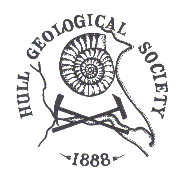
Hull Geological Society

Hull Geological Society 135th Anniversary
Memories – Holderness, Hull
and the Hull Geological Society
Being born in Bridlington and living in Hornsea (until I
went to college) I have been fascinated by the glacial sediments exposed in the
sea cliffs of Holderness. My grandparents moved to Atwick when they sold the
cafe in Bridlington and also kept their cottage on the cliff top at Skipsea that
they had had since living in Doncaster. Hence I was constantly looking at the
sediments exposed in the sea cliffs when I should have been swimming or building
sand castles!
Whilst at college I visited Rothamstead Experimental
Station pedology department in Hertfordshire a number of times. There I was
lucky enough to meet John Catt a number of times. John got his PhD from Hull
University in 1963 on the glacial sediments of Holderness. Given my
undergraduate interest in glacial sediments and the Pleistocene (I did part of
my dissertation on the shelly glacial sands and gravels at the Kelsey Hill pits
at Keyingham) John suggested I approach Lewis Penny, head of the geology
department in Hull at the time, to see if he had research funds to do a
postgraduate degree in Hull. He didn’t so I ended up in Aberdeen!
I moved back to Driffield from Ireland in late 2005 and I
think I joined the Hull Geological Society the next year. I remember attending a
field meeting at Danes Dyke soon after I joined. I arrived early and the first
person I met was Derek Gobbett. We were both interested in the older glacial
sediments on Holderness and in Yorkshire. Mike Horne, Ian Heppenstall and Stuart
Jones soon arrived to lead the trip so it was excellent to meet them and others.
I hadn’t been to Flamborough for years - my aunty and uncle had previously has a
cottage in the village. The HGS members had set up the Flamborough Quaternary
Research Group a few years earlier to study the sediments at the Sewerby buried
cliff site, Danes Dyke and South Landing on the south side of Flamborough Head.
It was very interesting to join in with the group and help in the work on the
sites and to involve Professor Mark Bateman (Sheffield University) in working on
dating the sites.
In 2014 I think Mike Horne suggested to Graham Kings (who
was looking for a geology project on the Holderness coast) that he start
photographing the coastal cliffs and describing the glacial sediments much as
W.S. Bisat had carried out in the 1930s. Hense the Bisat Research Group was
formed. Bisat published sections of his work in journals but it would be most
useful now and for future work to have a photo archive to record the cliffs and
their sediments. Graham carried out the photography over the period 2014 – 2020
with the assistance of Dennis Haughey, Arthur Speed and my self. There are now
many hundreds of excellent continuous photographs curated from Sewerby to near
Spurn Head only interupted by the sea defences at various locations. Work is now
underway to describe in more detail various sections that seem to add to the
lithological variability in the till deposits or the dating of the sequence.
Rodger Connell, 3 September 2023
Copyright - Hull Geological Society 2023
Registered Educational Charity No. 229147